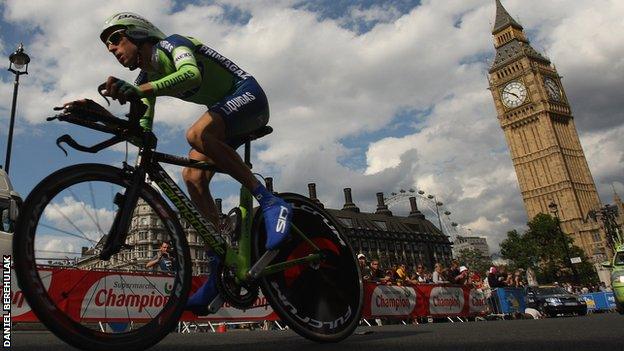Bicycle 'should win Nobel Peace Prize'
- Published
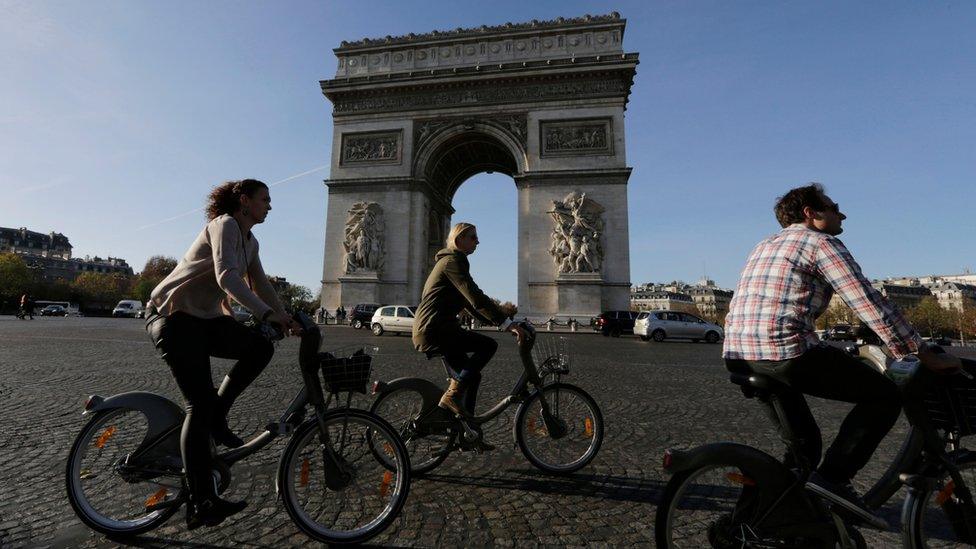
The organisers of the petition say the bicycle causes fewer casualties and does not fuel wars over oil
The Nobel Peace Prize 2016 should go to the bicycle - at least that is what two presenters on Italian state radio believe, and they have started a petition to push for it.
The popular Caterpillar programme on Italy's Rai 2 network is gathering signatures, external to present to the Norwegian Nobel Committee in February.
The presenters describe the humble two-wheeler as an "instrument of peace".
They say the bicycle does not cause wars - often fought over oil.
The bike "is the most democratic means of transport available to humanity", say Caterpillar's hosts Massimo Cirri and Sara Zambotti.
They add that each kilometre pedalled generates a benefit to society of €0.16 (30.12; $0.17), compared with the social costs of using a car.
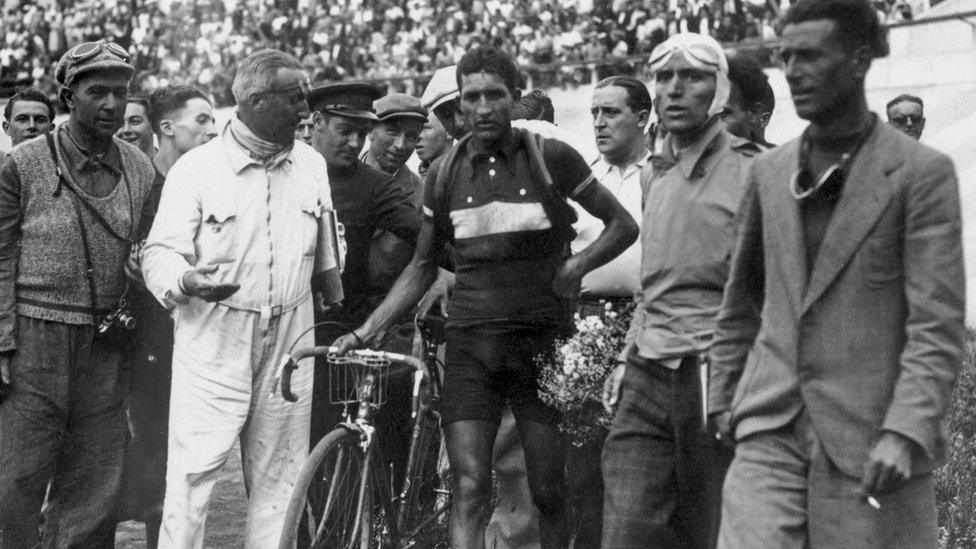
Italian cycling champion Gino Bartali (centre) used his bicycle in World War Two to help save Jews by ferrying counterfeit documents
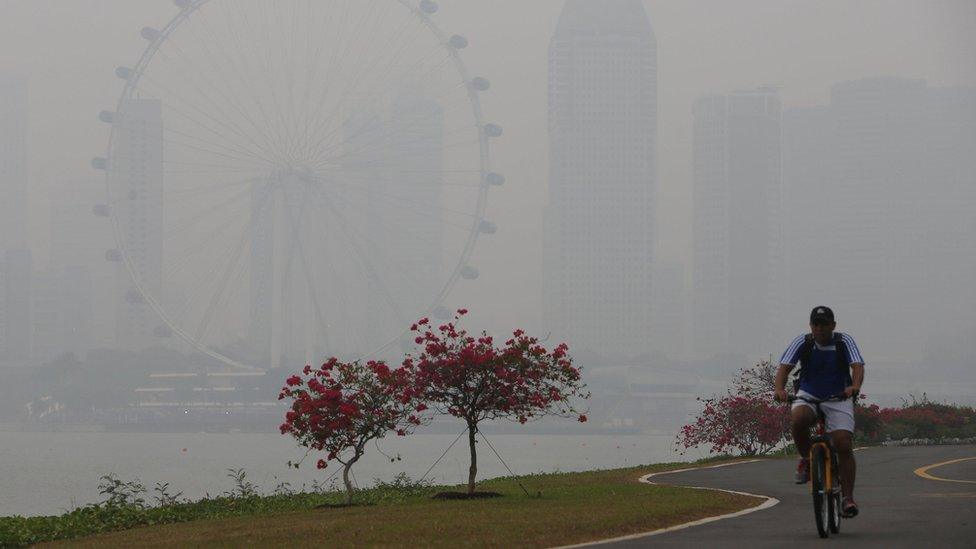
Riding a bicycle does not cause air pollution - another factor the petition organisers cite
The lack of pollution and markedly fewer road casualties caused by cycles are also cited, along with the way cycles help children develop independence and bring people closer together.
The petition's proponents use the example of Italian cycling champion Gino Bartali, who ferried counterfeit documents by bike to save Jews during World War Two, as an example of how the cycle aids "liberation and resistance".
The plan is to deliver the completed petition to the Nobel Committee by bike relay.
The petition has been launched amid a surge in the popularity of cycling - in sport, leisure and for commuting in cities.
Recent Nobel Peace Prize, external winners include President Obama, the European Union, the Organisation for the Prohibition of Chemical Weapons (OPCW) and Chinese human rights campaigner Liu Xiaobo.
- Published5 August 2015
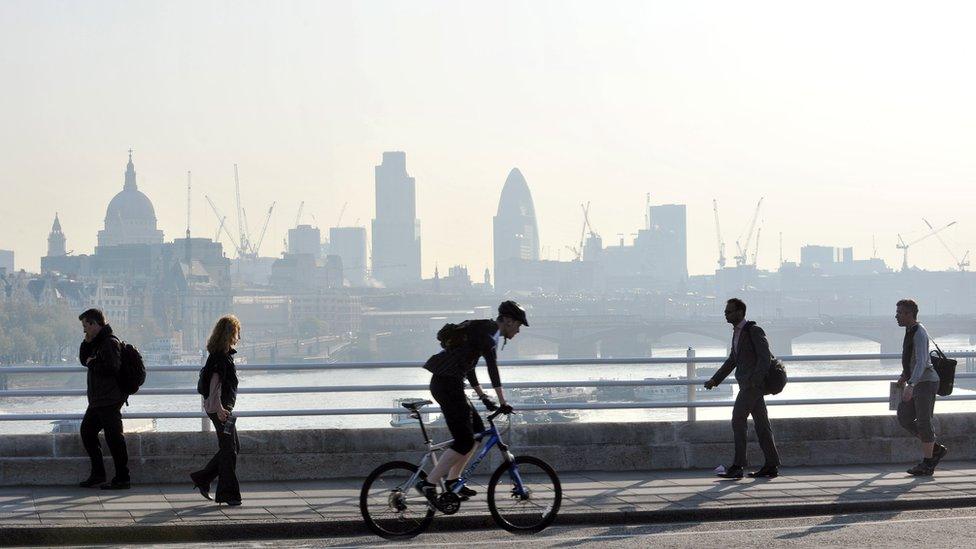
- Published9 May 2014
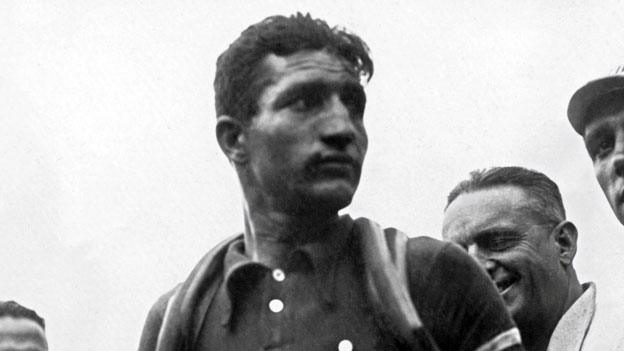
- Attribution
- Published28 September 2015
